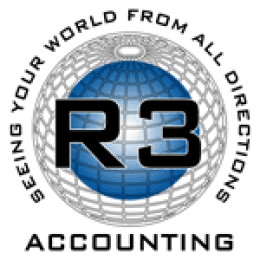
Accounting for Blockchain and Digital Assets: Key Audit Considerations
Jul 1, 2025
Introduction
As the adoption of digital assets and cryptocurrencies accelerates, the accounting and auditing landscape must evolve to address the complex challenges these technologies present. Cryptocurrencies such as Bitcoin, Ethereum, and other blockchain-based tokens are unique financial instruments that raise new issues related to classification, valuation, and verification.
In this article, we explore the latest accounting guidance from standard-setting bodies, key auditing risks, and the practical considerations for professionals working with clients who invest in or transact with digital assets.
Accounting Guidance
U.S. Financial Accounting Standards Board (FASB)
On December 13, 2023, the FASB issued Accounting Standards Update (ASU) 2023-08, Intangibles—Goodwill and Other—Crypto Assets (Subtopic 350-60): Accounting for and Disclosure of Crypto Assets.
The ASU applies to assets that meet all the following criteria:
Meet the definition of an intangible asset
Do not provide enforceable rights to other assets or services
Reside on a blockchain or distributed ledger
Are secured through cryptography
Are fungible
Are not issued by the reporting entity or its affiliates
Under the new guidance, crypto assets must be measured at fair value, with changes recognized in net income. Entities are also required to disclose information about significant holdings, contractual sale restrictions, and transaction activity.
This guidance is effective for fiscal years beginning after December 15, 2024.
Additionally, the AICPA has released a non-authoritative practice aid—Accounting for and Auditing of Digital Assets—which offers useful implementation guidance.
International Financial Reporting Standards (IFRS)
Under IFRS, digital assets are typically treated as intangible assets under IAS 38, unless held for sale, in which case they may qualify as inventory under IAS 2. The IFRS Interpretations Committee reaffirmed this in its June 2019 guidance, clarifying that cryptocurrencies do not meet the definition of cash or a financial asset.
Auditing Risks and Considerations
Auditing digital assets introduces unique risk areas, particularly concerning existence, valuation, and ownership. Additional considerations include internal controls, custody arrangements, and cybersecurity.
1. Risk of Existence
Auditors must verify that reported crypto assets actually exist:
Blockchain Verification: Public blockchains can be audited using blockchain explorers, but auditors must assess the relevance and reliability of these tools.
Cold Wallets and Multi-Signature Wallets: Verifying cold storage involves both digital and physical controls. Multi-signature wallets add complexity due to shared key management.
Custodial Relationships: Custodians may commingle client assets or offer segregated solutions, each requiring tailored audit approaches.
2. Risk of Valuation
Crypto markets are volatile, making valuation a significant risk area:
Market Pricing: Auditors should corroborate prices using multiple exchanges and ensure the pricing reflects an active and orderly market.
Fair Value Hierarchy: Most cryptocurrencies qualify as Level 1 assets, but less liquid tokens may fall under Level 2 or 3.
Use of Pricing Aggregators: These do not represent actual markets and should be assessed carefully for audit relevance.
3. Risk of Ownership
Establishing ownership over digital assets is more complex than for traditional assets:
Private Key Control: Access to private keys is essential for asserting control. Lack of control may reclassify the asset as a receivable or custodial arrangement.
Legal Agreements: Review of third-party contracts and custody agreements is crucial to validate ownership.
Third-Party Confirmations: Independent verification from custodians can enhance audit reliability.
Internal Controls and Governance
Strong governance and internal controls are critical when dealing with digital assets:
Custody and Safekeeping: Best practices include hardware wallets, access management, and secure backups.
Transaction Authorization: All digital asset transactions should be traceable, approved, and securely logged.
SOC Reports: If using a third-party custodian with a SOC 1 or ISAE 3402 Type 2 report, auditors should obtain and evaluate the report as part of their internal control documentation.
Cybersecurity Considerations
Cybersecurity is a critical risk area for digital asset management. Organizations must protect against loss or theft of private keys, malware targeting wallets, and unauthorized access to crypto infrastructure.
How R3 Accounting Can Help
At R3 Accounting, we understand the tax and accounting challenges surrounding blockchain and crypto assets. Our team of licensed CPAs and blockchain specialists can guide investors, entrepreneurs, and businesses through:
Accurate digital asset accounting and financial reporting
Crypto tax planning and compliance
Blockchain integration for businesses seeking tokenized growth strategies
Whether you’re an investor, a startup founder, or an established business exploring blockchain for the first time, R3 Accounting can help you navigate this complex and evolving space with clarity and compliance.
Partner with R3 Accounting
With R3 Accounting, you gain more than just a service provider—you gain a partner dedicated to your business’s success. Our consulting services are designed to deliver expert solutions tailored to your specific challenges, enabling you to focus on growing your business with confidence.
Schedule a Consultation
© Copyright 2025. All Rights Reserved.
Serving Greater Fort Lauderdale, Lauderdale by the Sea, Oakland Park and Pompano Beach
